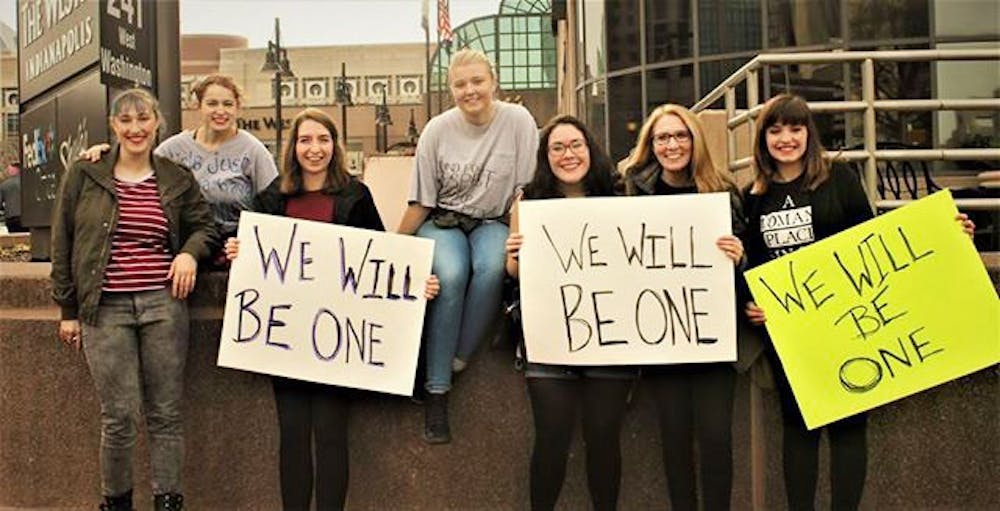By Becca VanHorne | Contributor
When I was in ninth grade, a male peer told me I was "not hot enough to rape." Not only was this statement crude and hurtful, it also communicated a false truth about me.
Sexism is an act of projecting a distorted truth on someone else without their consent. This truth is often one-sided and boils away the personhood of that being. Examples of this include cat calls, career limitations for women, sexual assault, rating a woman's body, or even comments about a woman's place being in the kitchen. In each of these situations, an outsider decides something about that woman. She has little to no room in that space to discover truth of her own. In many cases relating to sexuality or beauty, women internalize these false claims, which are especially harmful because they drastically reduce women to single attributes.
Before my peer made his rape comment, I was explaining how my grandmother had encouraged my sister to carry mace with her for protection and how I felt the need to carry some, too. In his comment, my male classmate communicated that I would not be worth the very thing I fear because of how I looked; that my sexual appeal as a 15-year-old was not great enough for men to "grant" rape to me. This comment has stayed with me and is still painful to think back on.
Along with this incident, I've received countless comments that either praised or shamed me for my looks. This has changed the way I view myself and experience relationships with men. Because these single stories are communicated to women through peers, relatives, strangers and the media, it is extremely difficult to fight internalizing these lies, because they come from those we trust.
In our society, comments like those I received about my appearance display an underlying attitude about women that translates into terrible offenses. Women across the world face rape, loss of education, sexual slavery, genital mutilation and countless other forms of oppression. This type of injustice results from our society's separation of people from their humanity. We need activists to challenge and find solutions to these attitudes.
After I was told "You aren't hot enough to rape," another peer in the conversation intervened for me, telling the commenter: "You can't just say that." In this act, she was challenging the "truth" he projected on me. This small act of advocacy helped me assess the weight I otherwise would have given the comment. When we consistently challenge these single-sided stories, we open space for further conversations. We also help women reject distorted stories and create healthier self-perceptions about actual abilities and character rather than physical traits or a set feminine mold.
We must choose to engage with feminism. It can be emotionally taxing, ambiguous and, at times, polarizing. It is hard to understand what is personally or culturally acceptable concerning women, especially at a place like Taylor where this discussion easily becomes heated and is sometimes rooted in different understandings of Christianity. At the same time, we will find no justice or restoration if we don't engage with this topic.
The women's movement doesn't mean women can't be housewives or wear makeup. It doesn't mean we hate men. The women's movement means I do not want my worth to be derived from my physical appearance. It means others aren't allowed to touch my body without my permission. It means I have the ability to prove my intelligence level before others decide how smart I am. It means others must earn the right to speak with truth about who I am-body, career and brain included.
The women's movement means I get to decide which stories about me are true and which ones are not.





